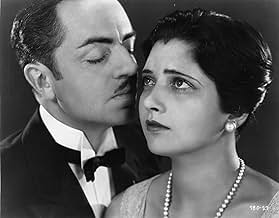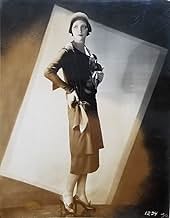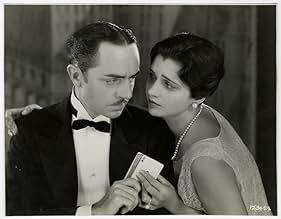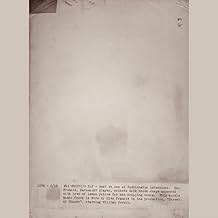Aggiungi una trama nella tua linguaA big-time, but honest gambler has to prevent his younger brother from following in his footsteps, and taking up gambling.A big-time, but honest gambler has to prevent his younger brother from following in his footsteps, and taking up gambling.A big-time, but honest gambler has to prevent his younger brother from following in his footsteps, and taking up gambling.
- Candidato a 1 Oscar
- 3 vittorie e 1 candidatura in totale
Oscar Apfel
- Bartender
- (non citato nei titoli originali)
G. Pat Collins
- Police officer
- (non citato nei titoli originali)
John Cromwell
- Imbrie
- (non citato nei titoli originali)
Gordon De Main
- Gambler
- (non citato nei titoli originali)
Jack Luden
- Holland House Hotel Clerk
- (non citato nei titoli originali)
William H. O'Brien
- Waiter
- (non citato nei titoli originali)
Broderick O'Farrell
- Gambler
- (non citato nei titoli originali)
Trama
Lo sapevi?
- QuizThe Alfred Hitchcock Hour (1962-1965) remade this story under the title of "A Piece of the Action" starring Gig Young and Robert Redford. It was the premier program of the show.
- ConnessioniFeatured in David O. Selznick: 'Your New Producer' (1935)
Recensione in evidenza
In this film, the always debonair William Powell plays a businessman leading a double life as "Natural" Davis, an elite gambler with a penchant for winning because he "knows the percentages." He deals with gangsters and can summon up toughness when he needs to, but he also has personal integrity and treats people with fairness, at least, per his world's code. He's thus another example the common (and rather dubious) film trope of a guy who's operating outside the law, but lives by a moral code and is established as virtuous anyway. Here that's somehow true even when we see him order another gambler to be murdered because he's caught him stealing from him. Naturally, the violence isn't depicted.
Trouble comes to Natural Davis in two forms: (1) his wife (Kay Francis) is fed up with his late nights and threatens to call it quits, and (2) his little brother (Regis Toomey) comes to town looking to gamble himself, not knowing that the legendary Natural Davis is his own brother. Natural tries to do the right thing on both fronts, that is, to make drastic changes to preserve his marriage, and to attempt to dissuade his brother from the sordid life of gambling. His idea is a little trickery to do the latter, leading to a pretty fine scene of the brothers in a high stakes poker game together.
The film is certainly stronger towards the end, but it's a little mechanical getting there, stretching its simplistic plot out to fill the runtime. It's not clear how this nominated for a Best Writing Oscar, but 1930 was not a particularly strong year for films, with filmmakers still adapting to sound (the following years up to the end of the pre-Code era are certainly better). Regardless, from where I sit, Kay Francis and Jean Arthur (who plays the brother's wife) were largely wasted, their characters mostly just planets in orbit around Powell's. There is drama leading to a great final line from Powell, but the story line for the brother was unsatisfactory because it seemed far too tidy (wow, cured just like that, despite the temptation on the train!).
With that said, the film is worth seeing if you're a fan of the stars, and there were also various little things from the era that caught my eye. Mostly these are shots in New York, including the light streaming through the windows of Grand Central Station, and the big billboards for James J. Walker, a Tammany Hall mayor who was forced to resign a couple of years later. I also liked the neon sign advertising Spider-Web Hosiery in the background of the scene Powell has with Arthur. Lastly, it was interesting to see the swastika on some of the poker chips, but while the Nazis had already appropriated the symbol by this time, it appears these types of chips had been made for decades in America, and mercifully no fascist sympathies were being subtly expressed.
Trouble comes to Natural Davis in two forms: (1) his wife (Kay Francis) is fed up with his late nights and threatens to call it quits, and (2) his little brother (Regis Toomey) comes to town looking to gamble himself, not knowing that the legendary Natural Davis is his own brother. Natural tries to do the right thing on both fronts, that is, to make drastic changes to preserve his marriage, and to attempt to dissuade his brother from the sordid life of gambling. His idea is a little trickery to do the latter, leading to a pretty fine scene of the brothers in a high stakes poker game together.
The film is certainly stronger towards the end, but it's a little mechanical getting there, stretching its simplistic plot out to fill the runtime. It's not clear how this nominated for a Best Writing Oscar, but 1930 was not a particularly strong year for films, with filmmakers still adapting to sound (the following years up to the end of the pre-Code era are certainly better). Regardless, from where I sit, Kay Francis and Jean Arthur (who plays the brother's wife) were largely wasted, their characters mostly just planets in orbit around Powell's. There is drama leading to a great final line from Powell, but the story line for the brother was unsatisfactory because it seemed far too tidy (wow, cured just like that, despite the temptation on the train!).
With that said, the film is worth seeing if you're a fan of the stars, and there were also various little things from the era that caught my eye. Mostly these are shots in New York, including the light streaming through the windows of Grand Central Station, and the big billboards for James J. Walker, a Tammany Hall mayor who was forced to resign a couple of years later. I also liked the neon sign advertising Spider-Web Hosiery in the background of the scene Powell has with Arthur. Lastly, it was interesting to see the swastika on some of the poker chips, but while the Nazis had already appropriated the symbol by this time, it appears these types of chips had been made for decades in America, and mercifully no fascist sympathies were being subtly expressed.
- gbill-74877
- 19 set 2023
- Permalink
I più visti
Accedi per valutare e creare un elenco di titoli salvati per ottenere consigli personalizzati
- How long is Street of Chance?Powered by Alexa
Dettagli
- Data di uscita
- Paese di origine
- Lingua
- Celebre anche come
- Brottets gata
- Luoghi delle riprese
- Azienda produttrice
- Vedi altri crediti dell’azienda su IMDbPro
- Tempo di esecuzione1 ora 15 minuti
- Colore
- Proporzioni
- 1.20 : 1
Contribuisci a questa pagina
Suggerisci una modifica o aggiungi i contenuti mancanti

Divario superiore
By what name was Street of Chance (1930) officially released in Canada in English?
Rispondi



































